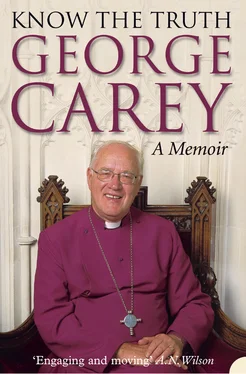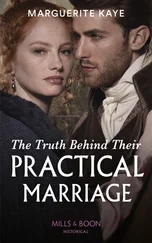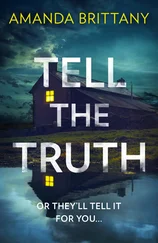I have little recollection of the many schools I must have entered during those years, except the shock of sitting the eleven-plus examination in 1946, and failing it. Of course, most working-class people then – and possibly even today – gave very little thought to such exams. Life had dealt them such a poor hand that they became accustomed to failure and constant disillusionment. I don’t recall my parents being terribly bothered by my failure, but I myself was keenly aware of its momentous significance. Looking back, I am sure that the shock of failing the eleven-plus had a very important part in my later determination to succeed academically. Even at that age I was aware that this exam could determine, to a large degree, the trajectory of one’s life. I was shaken, angry and very disappointed with myself.
So to Bifron’s Secondary Modern School I went. It wasn’t such a bad place for a boy keen to learn, and I quickly made friends. ‘Speedy Gonzales’ was my father’s nickname for me, because I always had my head in a book, and ‘speedy’ was, to be honest, the last thing I was. School reports from the period inform me that I was regularly in the top three places in most subjects. My favourite teacher, Mr Kennedy, a delightful Scot who had entered the teaching profession directly from the navy, taught English. He opened to me the riches of literature, and I borrowed book after book from him. To this day I owe him so much – for teaching me, with his softly-spoken Scottish accent, the power of literature and the need for precision in language. I recall one time when I had to read out an essay I had composed to the class. I felt very proud to be chosen, and weaved into it a few newly discovered words. Suddenly I came to ‘nonchalantly’.
‘What do you mean by that word, Carey?’
‘Well, sir, I think it means “carelessly”.’
‘Then why didn’t you use the word “carelessly”, because all of us know that word better than “nonchalantly”!’
Afterwards, Mr Kennedy said, ‘A good essay, George, but don’t use language to show off!’
And then there was the Headmaster, Mr Bass, who always wrote in green ink. His impact on my life was his belief in me. I remember the time when Alec Harris, my best friend, and I played truant. Alec had been asked by his mother to do some shopping. No shopping was in fact done. With the money burning a hole in his hand, Alec and I went to Barking cinema – known as the ‘fleapit’ – instead, where a horror film banned to children was the main attraction. We attached ourselves to an obliging man and spent Mrs Harris’s money on the tickets, ice cream and sweets. We got our just deserts, because the film was particularly horrible, with realistic scenes of a hand that strangled people. Leaving the cinema, both of us realised the even more horrifying consequences of what we had done. Not only had we played truant, but we had spent someone else’s money on a film we were not entitled to see. Mrs Harris was, not surprisingly, angry, and reported us both to the school. I was caned, but long after the pain had subsided the rebuke in Mr Bass’s voice hurt me more: ‘I am disappointed by you, Carey. You have let yourself down. You are worthy of better things than this.’
What made this incident particularly distressing was that the late forties were very tough for ordinary people. Employment was not a great problem and most men found work quickly, but wages were low, and poverty dogged the steps of most working-class families. Mrs Harris had every right to be profoundly distressed. Luckily I was able to keep the story from my parents, who would have been appalled by my behaviour. As for our family, Dad continued to work at Ford, and brought home just enough for us to pay the rent and get by. Life was hard, but we were a happy family, and entertainment came from fun in the home, close friendships at school, and of course from the radio, or ‘wireless’ as everyone called it.
One day the wireless packed up. We were dismayed beyond measure, but Dad reassured us that we would get a new one, although as we could not afford to buy it outright, it would have to be on hire purchase. I shall never forget the day the salesman came to agree terms with our parents. Soon we would be the proud owners of a new radio, and for the five children it was a moment to savour and look forward to. After the man had left, one look at Dad’s face told the story – he did not earn enough to pay the monthly instalments for a new radio; we had to settle for a second-hand one that Mother bought with some saved housekeeping money the following day. I would not go so far as to say that that incident alone made me conscious of the unfairness of life, and the way that a privileged class controlled the rest of us. It is true to say, however, that the form of Christian faith I espoused later in life had a clear social and political foundation. If it did not make a difference to life, it could never be for me a real faith.
Party politics did not intrude greatly into our home. Mum and Dad were working-class Conservatives, as far as political affiliation was concerned. My father was an intelligent man and enjoyed a good argument. His daily paper was the Express , and every Sunday the People was read from cover to cover. They were Tory papers. He had no time for socialism, believing it to be allied to Communism, and therefore in his view opposed to everything that made Britain great and free. Our parents were also unashamedly royalist, principally, I believe, because the monarchy gave a visible form to British traditions and values.
Nevertheless, even as a young teenager I could not help wondering, as I watched our two happy parents, what the Conservative Party had ever done for them. ‘Look at how poor you are. Look at the way you struggle to make ends meet,’ I thought. I could not understand their acceptance of the way things were. Deep down I felt that there ought to be, indeed must be, a better way.
Shortly after the war we moved again, this time to a three-bedroom council house in Old Dagenham. Our parents had a modest bedroom overlooking the rear garden, which was bigger than our previous one, the girls were in a pokey ‘box room’, and the three boys shared a larger room overlooking the road. It was a house full of noise and fun. Most evenings we listened to the radio which engaged with our imaginations with serials like Dick Barton, Special Agent and many other favourites. We were encouraged to read, and the local library was a great resource. Whenever he had time Dad would disappear into the shed where his tools were stored and make toys for us all. Alas, I never did acquire his practical ability, although my brother Dennis did in abundance.
With romantic notions of the ocean, I decided to join the Sea Cadets at the age of twelve, and I stayed with this great youth organisation until I was sixteen. Admittedly I had to lie to get in, as the minimum age of entry was thirteen, but I was a tall, strong lad and managed to convince the CO that I was old enough. The Sea Cadets helped me to mix with other teenagers and gave me confidence in holding, my own with them.
At thirteen I was able to sit another examination to see if I was up to the level to attend high school, and this time I passed. I can still remember the feeling of happiness. I was not a failure after all. But then came another let-down – my parents visited Mr Bass, and the conclusion of the meeting was that there was more to be gained by my staying at Bifron’s than moving on at that stage. I was not unhappy with the decision, because I was comfortable at the school, was cruising through the classes and had made many friends. The blow was to come when, at the age of fifteen and a half, I had to leave Bifron’s with no qualifications whatsoever. Secondary-modern pupils did not sit the matriculation examination.
Читать дальше












